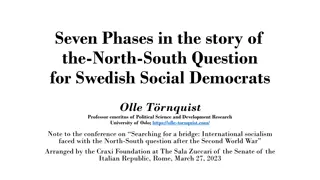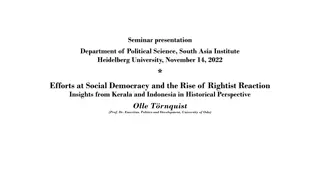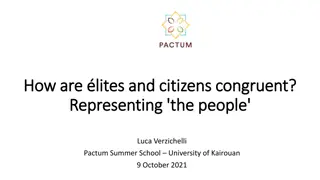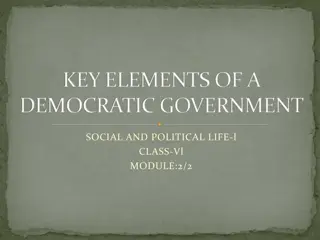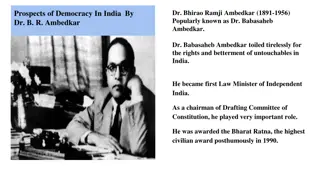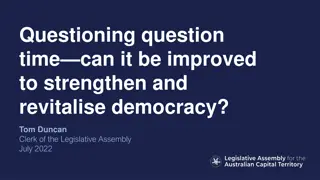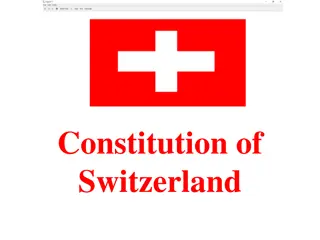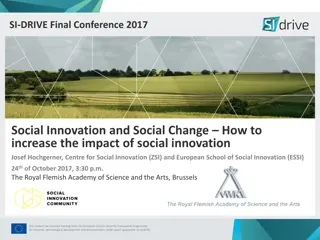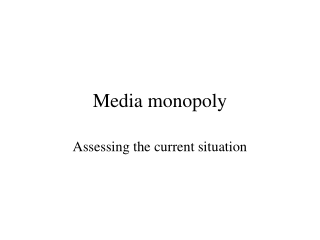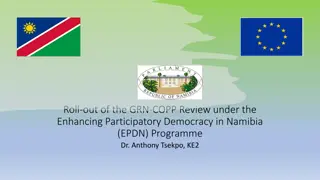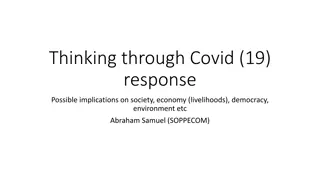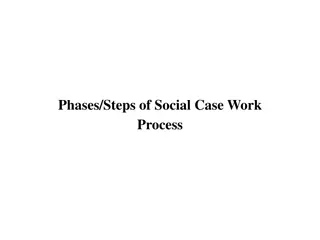Insights into the Evolution of Social Democracy in the Global Context
Exploring the challenges and transitions in social democracy from both Northern and Southern perspectives, this research delves into the complexities of needs-driven development based on social justice through democratic means. The author reflects on the decline of social democratic movements and proposes strategies for revitalization through comparative analyses of critical cases.
Download Presentation

Please find below an Image/Link to download the presentation.
The content on the website is provided AS IS for your information and personal use only. It may not be sold, licensed, or shared on other websites without obtaining consent from the author. Download presentation by click this link. If you encounter any issues during the download, it is possible that the publisher has removed the file from their server.
E N D
Presentation Transcript
Jakarta April 13, 2022 In Search of New Social Democracy: Insights from the South Implications for the North Olle T rnquist
Background When the 3rdround of assessing Indonesian democratisation was about to be completed in the early- mid-2010 s, I would have to retire quite soon, and the efforts at Social Democracy was on the retreat in the North as well as the South, so I decided to give up community work and focus instead on my own conclusions during studies since the early 70 s to try to understand why broadly defined social democratic movements were not doing well and if there were any openings.
Two roundups possible, but third more than difficult Moreover, the third book would be for all engaged and concerned, not just for experts and the closest bereaved. BUT HOW?? Four decisions
Necessary with lenses to read and compare efforts at Social Democracy. 1. Broad non-partisan definition of Social Democracy: needs-driven development based on social justice by democratic means. As no doctrine, specified historically. Four cornerstones Broad interest-based collectivities Democratic links between state and society of equal citizens Social rights and welfare reforms Social growth pacts Five strategies: Dismantle from above Tame by rules and regulations Resist from outside state Escape by social actions Series of transformative reforms Three generations. Northern industrial revolutions Anti-fascist and anti-colonial second wave of democracy Capitalist globalisation and liberal third wave of democracy
Thus producing new knowledge beyond previous texts by retrospective thematic analyses of previous results and updates, with the common new analytical framework in mind as well as with questions about the current challenges of Social Democracy.
2. Comparison of critical cases by contrasting contexts India/Kerala; Indonesia; Philippines (S Africa & Brazil) & Sweden 3. Formulating research questions as mysteries and then tell stories of how I tried to solve them by applying relevant parts of the analytical framework. 4. Reducing length and improving readability by revisiting field notes & interviews (1600+1800) to bring alive major arguments and conclusions with quotes and episodes, almost as when one makes a film instead of writing a long book. (Plus references in the end of the book).
Conclusions I (iii) Crisis of Social Democracy is Global. In the North, the problems in Sweden, for example, developed in the 70 s and are largely due to international undermining of the nationally confined Keynesian policies that had been successful since the 1930 s. And because Palme s & Brandt s efforts at a North-South alternative suffered from not just strong opponents in the North but also weak partners in the South. . In the South the problems were partly also due to this failure to build North South partnership. Plus thereafter the northern social democrats adjustment to the market driven globalisation and support for elitist democratisation.
So the first mystery is why the initially impressive anti-colonial movement- partners were weakened and unable to support partnership with the North. Instructive to compare the two must successful cases: Kerala and Indonesia Nasser, Sukarno, Nehru at the anti-colonial Bandung conference 1955 KERALA - The world s first freer elected communist though social democratic oriented government installed in Kerala 1957
* In Indonesia, as in most other cases, the initially successful democratisation was downgraded in favour of anti-imperial and anti-feudal left-populism: Guided Democracy. In the Philippines, the left s post-war focus was always anti-imperial vs. the US (and anti feudal) In addition, West oriented socialists and liberals abandoned democracy too, betting on the military: politics of order (Samuel Huntington)
Without democratisation, it was difficult to fight the political and often statist pathways to capitalism. genocide & Suharto s New Order. & Marcos. Kerala, however, stood tall and did better. But in Indonesia, the Philippines and in the Global South in general: two decades of West- and East- supported authoritarianism. From Left to Right all negated democracy
Conclusions II (iii) New hopes with the third wave of democracy, But unconvincing and regressing. (In Russia, even turned into imperial bonapartism) WHY?
Conclusions II (iii) Third wave of democracy unconvincing in context of neo-liberal ideas and economics, plus social democratic adjustment. Democratisation not backed up (as after WW2 in W. Europe) by soc-dem oriented industrial and welfare policies no inclusive development, scattered & weak working class. And social growth pacts unfeasible. CLASS IS NOT ENOUGH Broader alliances needed but fine bottom-up efforts via polycentric social movements and CSOs plus decentralisation were insufficient. BOTTOM-UP IS NOT ENOUGH Liberal oriented democratisation accommodated powerful elites by allowing them to retain private assets, or privatise public resources, and to negotiate new rules of the game that did gave pro-democrats few chances to make a difference. DEMOCRATISATION SHALLOW AND THUS NOT ENOUGH In the North, Sweden, for example, tried in 2014 to restart, but failed (again) without international alternative (in M-East) to neo-nationalism vs refugees.
Conclusions III (iii) Openings in the South (that may also be of interest for the North) 1. It has proved possible to buildbroad alliances in favour of equal civil, political and social rights, combined with productive welfare reforms. As in Indonesia for health reform and recently in Kerala to fight effects of Covid- 19. Thus also potential to resequence social democratic development: productive oriented welfare reforms based on broad alliances may shape social growth pacts rather than other way around as in the North.
2. Problems with this are political rather than structural: (i) lack of series of transformative reforms (i) lack of democratic partnership governance (as alternative to populism) Conclusion: Priority to (i) broad alliances for series of welfare reforms (along with civil rights) and (ii) solving the two problems.
35% discount on e-book for seminar participants via www.bloomsbur y.com: use code GLR TW9UK



